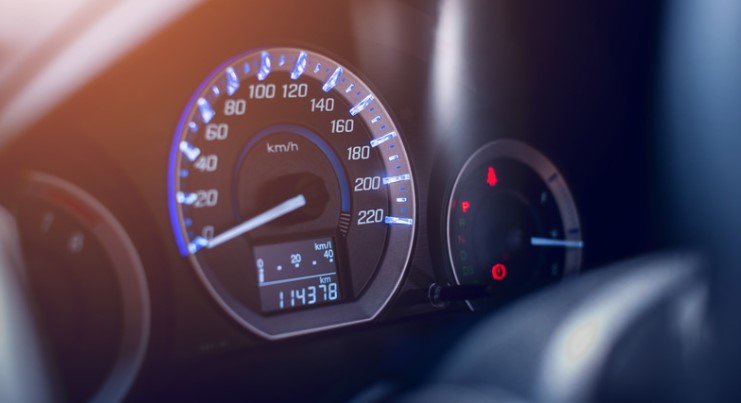Are you wondering how much to charge for mileage in the UK? Understanding the mileage rates and reimbursement options can help you navigate this aspect of business expenses more effectively. In this article, we will explore the HMRC mileage rates for tax year 2023/2024, how to calculate mileage costs, factors to consider for mileage reimbursement, the benefits of an automated mileage tracking app, and more. Let’s dive in!
How to Calculate Mileage Costs in the UK?
To calculate mileage costs in the UK, there are a few key steps to follow. Keeping a detailed mileage log for each trip is essential. Your mileage log should include the date of the trip, the purpose of the trip, the distance traveled, and the start and end addresses.
There are two options for keeping a mileage log: manual and automated. Manual tracking involves recording your trips in a physical notebook, while automated tracking relies on the use of a mileage tracking app. Whichever method you choose, it’s important to be consistent and accurate in recording your mileage.
By maintaining a thorough mileage log, you will be able to accurately calculate your business mileage expenses. This information is valuable when it comes to claiming the appropriate mileage allowance from your employer or for tax purposes.
Manual Mileage Tracking
If you prefer a hands-on approach, manual mileage tracking might be the right choice for you. It’s a straightforward method that involves keeping a physical record of your mileage in a notebook or spreadsheet.
Here’s how you can calculate mileage costs using manual tracking:
- Record the date of each trip, along with the purpose of the trip.
- Note down the starting and ending addresses for each trip.
- Measure the distance traveled using a reliable source, such as online mapping tools or a GPS device.
- Multiply the distance traveled by the applicable mileage rate to determine the cost of each trip.
- Keep all receipts and documentation related to your mileage expenses for future reference.
Automated Mileage Tracking
For those who prefer a more convenient and accurate approach, automated mileage tracking apps are a game-changer. These apps use GPS technology to automatically track and log your trips, eliminating the need for manual calculations.
Here’s how you can calculate mileage costs using an automated tracking app:
- Select a reputable mileage tracking app based on your preferences and needs.
- Install the app on your smartphone or other devices.
- Set up your account and customize the settings according to your requirements.
- Allow the app to track your trips automatically by enabling location services.
- Review and categorize each trip in the app, noting the purpose of the trip.
- Generate mileage reports from the app, which provide a detailed breakdown of your mileage expenses.
Using an automated mileage tracking app not only saves you time but also ensures accuracy in your calculations. These apps make it easy to generate HMRC-compliant reports and provide a comprehensive overview of your business mileage expenses.
| Method | Pros | Cons |
|---|---|---|
| Manual Tracking |
|
|
| Automated Tracking |
|
|
Ultimately, the choice between manual and automated mileage tracking depends on your personal preferences and needs. Both methods can effectively calculate mileage costs in the UK, so choose the one that suits you best.
How Much to Charge for Mileage in the UK?
Charging for mileage is a common practice for businesses and individuals who travel for work purposes. Understanding the appropriate rates to charge can ensure you are fairly compensated while adhering to guidelines set by HM Revenue and Customs (HMRC). Below is a comprehensive breakdown of the current mileage rates in the UK.
| Rate Type | Amount (GBP) | Description |
| Standard Car Mileage Rate | £0.45 per mile | For the first 10,000 miles in a tax year. |
| Reduced Car Mileage Rate | £0.25 per mile | For each mile over 10,000 in a tax year. |
| Motorcycle Mileage Rate | £0.24 per mile | Applicable to motorcycles, regardless of the distance. |
| Bicycle Mileage Rate | £0.20 per mile | Applicable to bicycles, regardless of the distance. |
| Van Mileage Rate | £0.45 per mile | For the first 10,000 miles, same as cars. |
| Passenger Rate | £0.05 per mile | Additional rate per mile for each passenger who is also on a work-related journey. |
Factors to Consider for Mileage Reimbursement in the UK
When determining mileage reimbursement rates in the UK, employers should consider several factors in addition to the HMRC mileage rates. While the HMRC rates serve as a guideline, employers have the flexibility to choose their own reimbursement rate, which may be lower or higher than the official rate. It’s important to take into account the unique circumstances and costs associated with business travel. Here are some factors to consider:
1. Type of Vehicle
The type of vehicle used for business travel can impact mileage reimbursement rates. Different vehicles have varying fuel efficiency and maintenance costs. For example, a company car with higher fuel consumption and maintenance expenses may justify a higher reimbursement rate compared to a personal car or a more fuel-efficient vehicle.
2. Insurance Costs
Insurance premiums for business vehicles vary based on factors such as the type of vehicle, its usage, and the driver’s history. Higher insurance costs may warrant a higher mileage reimbursement rate to cover the additional expense and ensure fair compensation for the employee.
3. Fuel Prices
The fluctuating cost of fuel is another factor to consider. Fuel prices can have a significant impact on the overall travel expenses. When calculating mileage reimbursement rates, employers may adjust the rates periodically to reflect changes in fuel costs.
4. Maintenance Expenses
Maintenance and servicing costs, including regular check-ups, repairs, and tire replacements, should be taken into account when determining mileage reimbursement rates. Vehicles that require frequent maintenance or have higher maintenance costs may require a higher reimbursement rate to cover these expenses adequately.
5. Company Car Mileage Rates
In some cases, companies may provide their employees with company cars for business purposes. The mileage rates for company cars may differ from those for personal cars. It’s crucial to have a clear understanding of the company’s reimbursement policy for company car usage to ensure fair compensation.
Consider all these factors to determine a fair and reasonable mileage reimbursement rate that adequately covers the costs associated with business travel. Remember, while the HMRC mileage rates provide a benchmark, they are not obligatory. Employers have the discretion to set their own reimbursement rates based on these considerations.
By taking into account the type of vehicle, insurance costs, fuel prices, maintenance expenses, and any differences between personal and company car mileage rates, employers can create a mileage reimbursement policy that aligns with their specific business needs and offers fair compensation to employees.

| Factors to Consider | Description |
|---|---|
| Type of Vehicle | The type of vehicle used for business travel can impact mileage reimbursement rates. Different vehicles have varying fuel efficiency and maintenance costs. |
| Insurance Costs | Insurance premiums for business vehicles vary based on factors such as the type of vehicle, usage, and driver’s history. |
| Fuel Prices | The fluctuating cost of fuel is another factor to consider when calculating mileage reimbursement rates. |
| Maintenance Expenses | Maintenance and servicing costs, including repairs and tire replacements, should be taken into account. |
| Company Car Mileage Rates | Mileage rates for company cars may differ from those for personal cars. |
The Benefits of an Automated Mileage Tracking App
Are you tired of manually tracking your mileage for business expenses? An automated mileage tracking app can revolutionize the way you record and calculate your mileage, saving you time and ensuring accurate expense reimbursements. Let’s explore the benefits of using such an app.
1. Streamlined Mileage Tracking
An automated mileage tracking app simplifies the process of recording your trips. Instead of jotting down mileage details, you can rely on the app to automatically track and log every mile you travel for business purposes. This eliminates the need for manual data entry and reduces the chances of human error.
2. Accurate Mileage Calculations
Calculating mileage expenses can be a daunting task, especially when dealing with multiple trips and varying rates. Thankfully, mileage tracking apps can accurately calculate the total distance traveled based on GPS data. By integrating with mapping services, these apps provide precise mileage calculations, minimizing the risk of overcharging or undercharging for your business travel.
3. HMRC-Compliant Reports
When it comes to mileage reimbursement, compliance with HMRC regulations is crucial. An automated mileage tracking app can generate reports that meet HMRC requirements, making it easier for you to submit mileage claims and ensuring a smooth reimbursement process. These reports often include essential details such as dates, distances, and purpose of each trip, providing a comprehensive overview of your mileage expenses.
| Benefits of an Automated Mileage Tracking App |
|---|
| Streamlined Mileage Tracking |
| Accurate Mileage Calculations |
| HMRC-Compliant Reports |

4. Trip Categorization and Notes
Automated mileage tracking apps often offer features for categorizing trips and adding notes about their purpose. This allows you to organize your mileage records more effectively and provide additional context for each journey. Whether it’s a client meeting, a site visit, or a business conference, you can easily differentiate and categorize your trips for better expense management.
5. Ensuring Full Mileage Allowance
One of the primary benefits of using an automated mileage tracking app is ensuring that you receive the full mileage allowance you are entitled to for your business travel in the UK. By accurately tracking and documenting your mileage, you can claim the appropriate reimbursement from your employer or maximize your tax deductions.
“Using an automated mileage tracking app has been a game-changer for my business travel. It saves me time, provides accurate mileage calculations, and ensures that I don’t miss out on any mileage reimbursement.” – Sarah Johnson, Sales Executive
With the multitude of benefits that an automated mileage tracking app offers, it’s no surprise that many professionals are opting for this modern solution. By simplifying the mileage recording process, improving accuracy, and facilitating compliance, these apps empower individuals and businesses to efficiently manage their mileage expenses.
How Much is the HMRC Mileage Rate in the UK?
The HMRC mileage rate for tax year 2023/2024 in the UK remains at 45p for the first 10,000 business miles and 25p for each business mile thereafter.
Conclusion
When determining how much to charge clients for mileage in the UK, it’s important to consider various factors to ensure fairness and accuracy. The HMRC mileage rates serve as a useful starting point, providing a standard guideline for reimbursement. However, it’s essential to take into account other elements such as the type of vehicle used, insurance costs, fuel expenses, maintenance requirements, and any additional expenses incurred during travel.
To accurately calculate mileage costs, maintaining a detailed mileage log is crucial. This log should include the date, purpose of the trip, distance traveled, and start and end addresses. Whether you choose to keep a manual record using a physical notebook or utilize an automated mileage tracking app, having a comprehensive log allows for precise calculations and aids in claiming the appropriate mileage allowance.
It’s worth noting that employers have the flexibility to set their own mileage reimbursement rates, which may differ from the HMRC rates. It is, therefore, paramount to clarify the reimbursement policy with your employer or clients to avoid any misunderstandings or discrepancies. By having open and transparent communication, both parties can ensure a fair and efficient system that satisfies everyone involved.
FAQ
Do employers have to pay the full HMRC mileage rate?
No, employers have the flexibility to choose their own reimbursement rate, although the HMRC mileage rate serves as a guideline.
How do I calculate mileage costs in the UK?
To calculate mileage costs in the UK, keep a mileage log that includes the date, purpose of the trip, distance traveled, and start and end addresses. This log can be kept manually or by using an automated mileage tracking app.
What factors should employers consider when determining mileage reimbursement rates in the UK?
Employers should consider factors such as vehicle type, insurance costs, fuel prices, maintenance expenses, and company car mileage rates when determining mileage reimbursement rates in the UK.
What are the benefits of using an automated mileage tracking app?
Automated mileage tracking apps simplify the recording and calculation of mileage expenses. They can track and log trips automatically, provide accurate mileage calculations, and generate HMRC-compliant reports. They save time and ensure accurate reimbursement calculations.
How should I determine how much to charge clients for mileage in the UK?
Start with the HMRC mileage rates as a starting point and consider factors such as vehicle type, insurance, fuel costs, maintenance, and any additional expenses. Discuss and clarify the mileage reimbursement policy with your employer or clients, as they have the flexibility to set their own rates.




